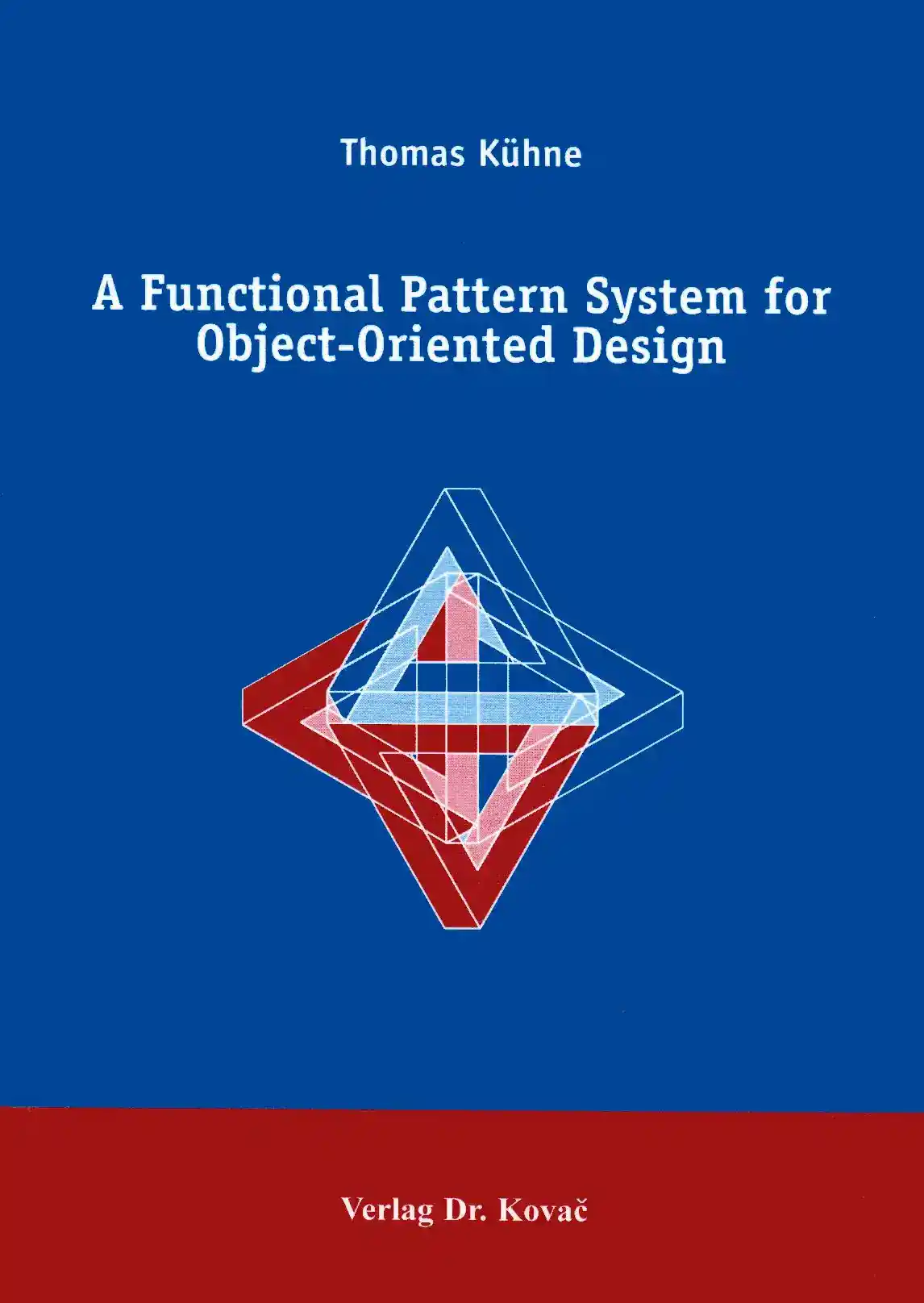Thomas KühneA Functional Pattern System for Object-Oriented Design
Forschungsergebnisse zur Informatik, Band 47
Hamburg 1999, 328 Seiten
ISBN 978-3-86064-770-7 (Print)
Zum Inhalt
This book integrates the vital areas of object-orientation, functional programming, design patterns, and language design. The most important concepts from functional programming are captured with six design patterns:
- FUNCTION OBJECTS (Black-box behaviour parameterisation)
- LAZY OBJECTS (Evaluation-by-need semantics)
- VALUE OBJECTS (Immutable values)
- VOID OBJECTS (Abandoning null references)
- TRANSFOLD (Combining internal & external iteration)
- TRANSLATOR (Homomorphic mapping with generic functions)
These patterns can be used with any object-oriented language to advance software design. The patterns form a system, i.e., a collaborating set of patterns. In their „Related Patterns“ sections the patterns refer to each other and to many other published design patterns. Each of the relevant areas (object-orientation, functional programming, design patterns) is introduced in the first part of the book. This part also compares the functional and object-oriented paradigms both in terms of concepts and on a calculus level.
The second part presents the functional pattern system. This system should be beneficial to software practitioners since it integrates the functional paradigm into object-oriented software design. Hence, advantages which have been primarily available in functional languages can be used in object-oriented languages as well. Even when some functional concepts have been partially established in object-oriented software already, they can now be understood as specialised uses of more general function patterns.
This practical aspect is complemented by a theoretical account of multi-paradigm language design. An evaluation of the pattern system for its implications on language design in the third part is concluded by proposing a new distribution of responsibilities between languages and their environments.
The book uses the Eiffel programming language to illustrate the patterns with running sample code. It includes a critical review of the Eiffel language in terms of its suitability as a functional pattern implementation language.
Schlagworte
Design patternEiffelFunctional patternFunctional programmingInformatikLanguage designObject-orientedParadigm integrationSoftware designIhr Werk im Verlag Dr. Kovač
Möchten Sie Ihre wissenschaftliche Arbeit publizieren? Erfahren Sie mehr über unsere günstigen Konditionen und unseren Service für Autorinnen und Autoren.
